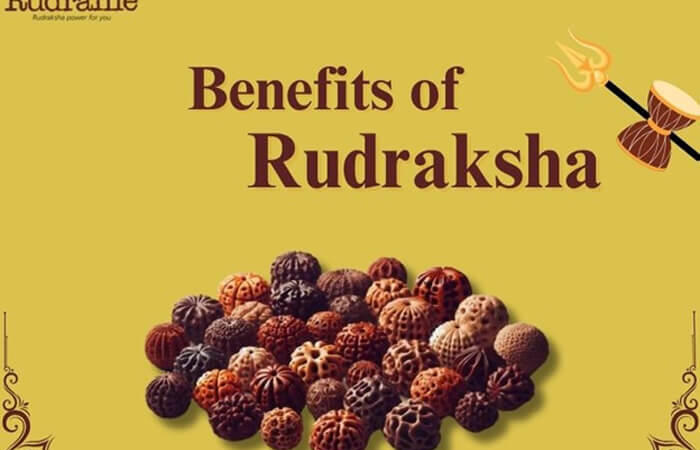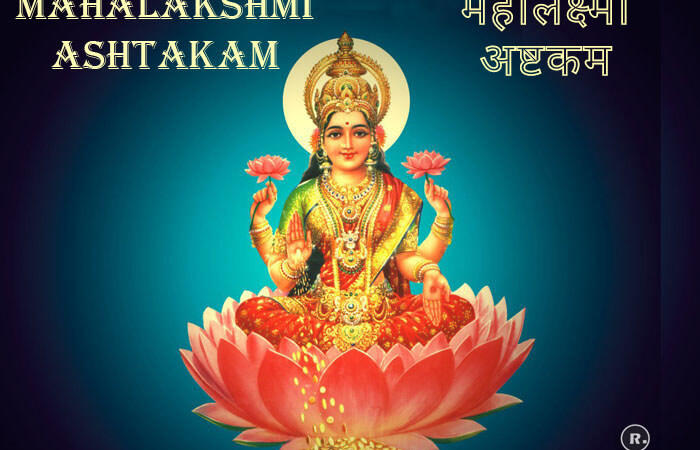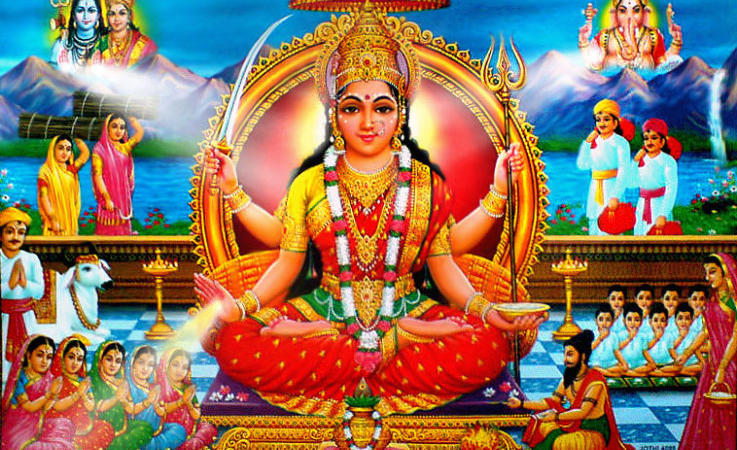Sri Guru Tegh Bahadur Parkash Utsav
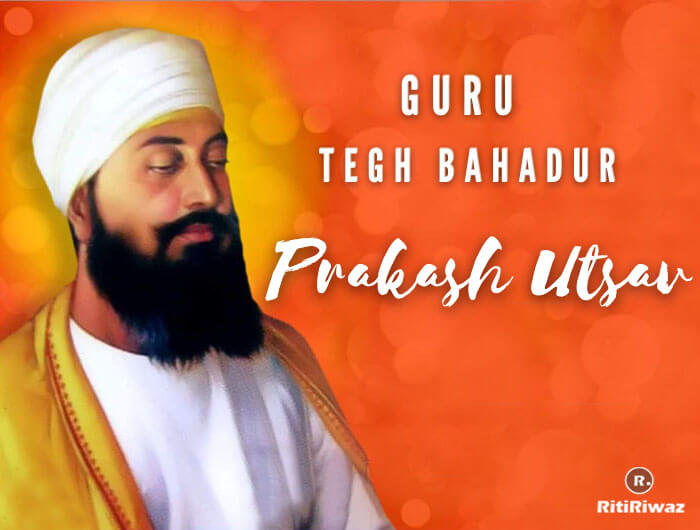
Guru Tegh Bahadur Ji was the ninth of ten Gurus of the Sikh community in India. Guruji’s great works and views on humanity have made the followers remember his birthday as Guru Tegh Bahadur Parkash Utsav in Vaisakh month. He dedicated his life to spreading the teaching of Guru Nanak, the first Guru of the Sikh.
Guru Tegh Bahadur was born on Vaisakh Vadi 5, (5 Vaisakh), Bikrami Samvat 1678, in Amritsar to Guru Hargobind Singh Ji, the sixth Guru of Sikhs and Mata Nanak Ji. The ninth guru is also known as ‘Hind di Chaadar‘ for sacrificing his life for the Hindu religion. The ninth guru had four brothers Baba Gurditta Ji, Baba Suraj Mal Ji, Baba Ani Rai Ji, Baba Atal Rai Ji, and one sister Bibi Veero Ji.
His childhood name was Tyag Mal. He was named Tegh Bahadur after, the ninth guru exhibited a show of bravery with a sword in the battle of Kartarpur against Painda Khan. Guru Tegh Bahadur had regular schooling from the age of six. Where he also learned classical, vocal, and instrumental music. Bhai Gurdas Ji also taught him Gurbani and Hindu Mythology. He was also trained in horsemanship, swordsmanship, javelin throwing, and shooting.
The ninth guru was married to Mata Gujri Ji on September 14, 1632. After the death of Guru Hargobind Sahib, Mata Nanki Ji took him and his wife (Gujri) to her natal village (Baba) Bakala near the river Beas. During the stay at Baba Bakala, Guru Tegh Bahadur paid visits to many holy and historical places like Goindwal, Kiratpur Sahib, Haridwar, Prayag, Mathura, Kashi (Varanasi), and Gaya.
A devout Sikh, Bhai Jetha took the ninth guru Patna. However, after hearing the news of the demise of the seventh Guru, Sri Guru Har Rai Ji, Guru Tegh Bahadur returned to Baba Bakala. After a few days, the eighth Guru, Sri Guru Harkrishan Ji prophetically uttered only two words “Baba Bakala” meaning that his successor would be found at (Baba) Bakala.
This created confusion as near about twenty-two posers and self-appointed successors sprung up in the small village Bakala. After a few months of confusion, in August 1664, Sikh Sangat headed by some prominent Sikhs from Delhi arrived at village Bakala and acknowledged Sri Guru Tegh Bahadur Ji as the Ninth Guru.
The dispute was finally resolved after Makhan Singh Lubana, a trader who after getting caught in a storm promised to offer all 500 gold coins to the real guru. After meeting Guru Tegh Bahadur, he offered only two coins, as he offered to others who claimed to be the successor of the eighth guru. After which Guru Tegh Bahadur asked about the remaining 498 coins. However, all the others accepted the two coins.
Guru Tegh Bahadur traveled extensively in different parts of the country, including Dhaka and Assam, to preach the teachings of Guru Nanak, the first Sikh guru. The places he visited and stayed in became sites of Sikh temples. During his travels, Guru Tegh Bahadur spread the Sikh ideas and message, as well as started community water wells and langars. He founded the city of Anandpur which later became a major center of Sikh temples.
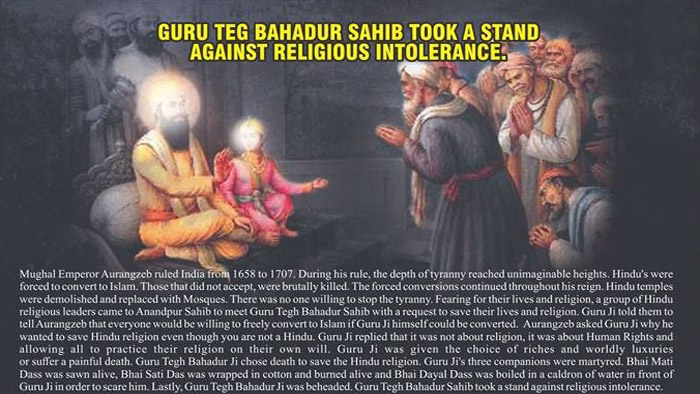
His son, Guru Gobind Singh, (the tenth Sikh guru), was born in Patna, while Guru Tegh Bahadur was away in Dhubri, Assam in 1666. After his visit to Assam, Bengal, and Bihar, the Guru visited Rani Champa of Bilaspur who offered to give the Guru a piece of land in her state. The Guru bought the site for 500 rupees where he founded the city of Anandpur Sahib.
When thousands of Kashmiri Pandits were massacred, and their property was looted on the orders of the then ruling Mughal emperor Aurangzeb, they visited Guru Tegh Bahadur for help. After long discussions with the prominent Sikhs and Kashmiri Pandits, Guru Sahib made up his mind to sacrifice himself for the cause of “Righteousness” and the freedom of “Dharma”. In 1675 Guru Tegh Bahadur was executed in Delhi on November 11 under the orders of the Mughal Emperor Aurangzeb.
“One who is not perturbed by misfortune, who is beyond comfort, attachment, and fear, who considers gold as dust.
He neither speaks ill of others nor feels elated by praise and shuns greed, attachments, and arrogance.
He is indifferent to ecstasy and tragedy, is not affected by honors or humiliations. He renounces expectations, greed.
He is neither attached to worldliness nor lets senses and anger affect him.
In such a person resides God.” – Guru Tegh Bahadur
Sikh devotees take out Nagar Kirtan on this day at several places across the country.

